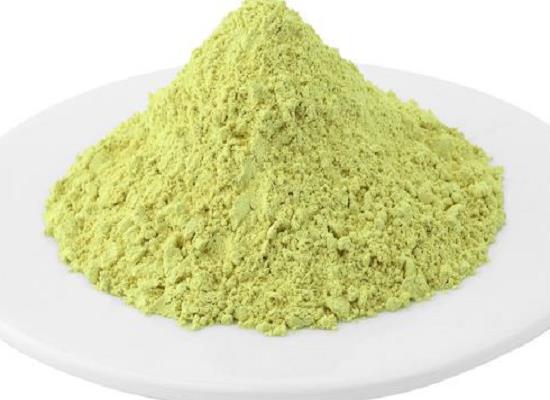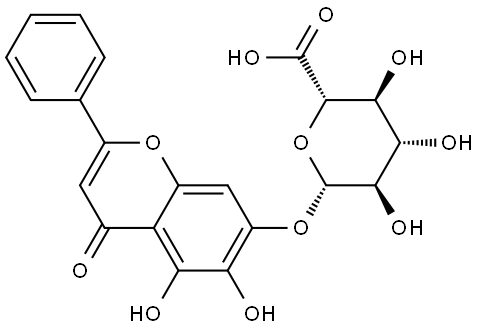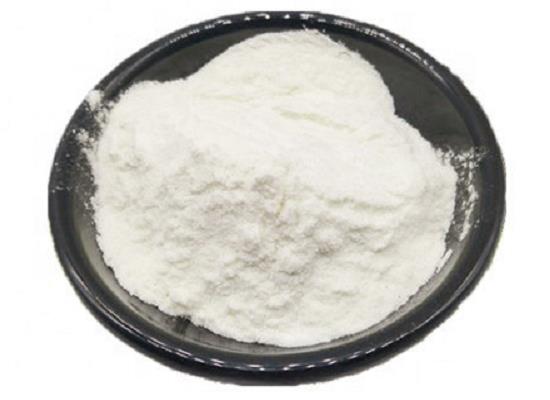Baicalin: Research Progress and Protection Against Liver-related Diseases
General Description
Baicalin is the main active ingredient of the traditional Chinese medicinal plant Scutellaria baicalensis, which has various pharmacological effects, such as anti-inflammatory, antioxidant, anti-obesity, anti-tumor, antibacterial, antiviral, anti-dyslipidemia, immune modulation, and cardiovascular, liver, and kidney protection. Baicalin is used to treat a variety of conditions, including hepatitis, hyperlipidemia, dysentery, and cirrhosis. In addition, it also has potential therapeutic effects on systemic diseases, including eye diseases, periodontal diseases, inflammatory diseases, metabolic diseases and even neurological diseases.

Figure 1. Baicalin
In recent years, the protective effect of baicalin on liver diseases has received increasing attention. Multiple studies have shown that baicalin has protective effects against several types of liver disease, including viral hepatitis, fatty liver disease, liver injury caused by xenobiotics, cholestatic liver injury, and hepatocellular carcinoma.
Viral Hepatitis
It has been reported that the flavonoid formula containing baicalin has significant effects on combating duck hepatitis A virus by inhibiting the replication of duck hepatitis A virus, increasing T and B lymphocytes, reducing liver damage, and reducing oxidative stress. Efficacy. In addition, the combination of baicalin and entecavir has a synergistic effect. Compared with the effect when used alone, the combination can enhance viral suppression, induce natural immune responses, and control HBV-related liver inflammation.
Fatty liver diseases (FLD)
Because baicalin has multiple anti-fatty liver effects, it is a potential drug for the treatment of fatty liver disease. Baicalin enhances lipid metabolism and inhibits hepatic de novo lipogenesis by inhibiting the Ca2+/CaM-dependent protein kinase β/AMP-activated protein kinase/acetyl-CoA carboxylase (CaMKKβ/AMPK/ACC) pathway. In addition, baicalin directly binds to carnitine palmitoyltransferase 1, thereby promoting lipid influx into mitochondria where it is oxidized, downregulating lipogenic genes such as sterol regulatory element binding protein-1c, fatty acid synthase, and peroxidase Proliferator-activated receptor alpha to reduce hepatic lipid accumulation. Another study showed that baicalin inhibits liver fibrosis, systemic inflammation, and oxidative stress in FLD. It reverses liver fibrosis by inhibiting the expression of α-smooth muscle actin, transforming growth factor β 1, and type I collagen α 1 chain. It also reverses epithelial-to-mesenchymal transition by inhibiting the TGF-β1/Smad3 pathway in vitro to prevent the development of liver fibrosis.
Hepatocellular carcinoma (HCC)
Studies have shown that baicalin shows potential therapeutic effects on HCC by inducing tumor cell apoptosis and autophagy. Baicalin inhibits HCC cell viability and proliferation in vitro by downregulating the expression of cyclin A, cyclin-dependent kinase 2, and cyclin D1 and inducing apoptosis. At the same time, it significantly inhibits the growth of xenograft tumors in nude mice. . In vitro studies have shown that it induces apoptosis in HepG2 and SMMC-7721 cells by upregulating Bax, downregulating Bcl-2, inducing caspase-9 and caspase-3 cleavage, and inducing poly ADP-ribose polymerase. The underlying mechanism may be related to the ability of baicalin to activate the transcription factor 6 signaling pathway by targeting site 2 protease in liver cancer cells. Furthermore, baicalin inhibits the growth of hepatocellular carcinoma by inducing autophagy by regulating tumor-associated macrophage repolarization.
Cholestasis regulation
Studies have highlighted NRF2 as a pivotal target of Baicalin in combating cholestasis. Research by Shen illustrated that Baicalin modulates cholestasis by orchestrating the interplay of oxidative stress, inflammation, and NRF2 activation. Administration of Baicalin at 50 mg/kg facilitated the nuclear translocation of NRF2, leading to the regulation of key fibrotic markers such as TIMP1, SMA, and collagen 1, thereby alleviating liver fibrosis induced by bile duct obstruction.
References:
[1] JIN-YU YANG. Pharmacological properties of baicalin on liver diseases: a narrative review.[J]. ACS Applied Electronic Materials, 2021. DOI:10.1007/s43440-021-00227-1.See also
Lastest Price from Baicalin manufacturers

US $5.00-0.50/KG2025-05-08
- CAS:
- 21967-41-9
- Min. Order:
- 1KG
- Purity:
- 99% hplc
- Supply Ability:
- 500TONS

US $0.00/kg2025-04-27
- CAS:
- 21967-41-9
- Min. Order:
- 1kg
- Purity:
- 0.99
- Supply Ability:
- 1000kg


